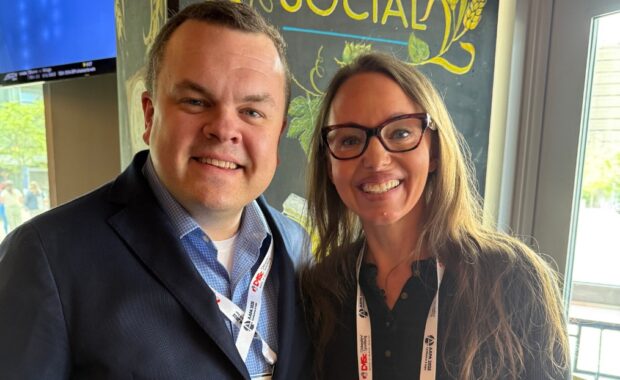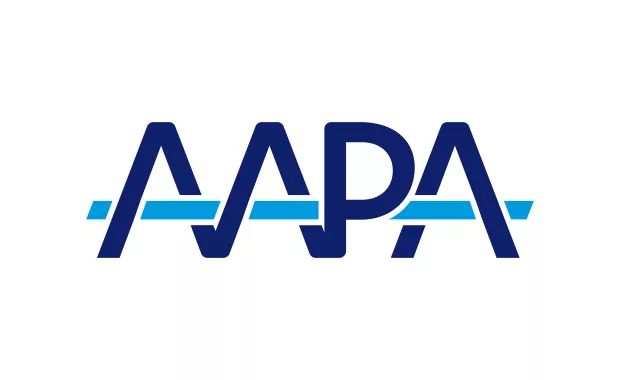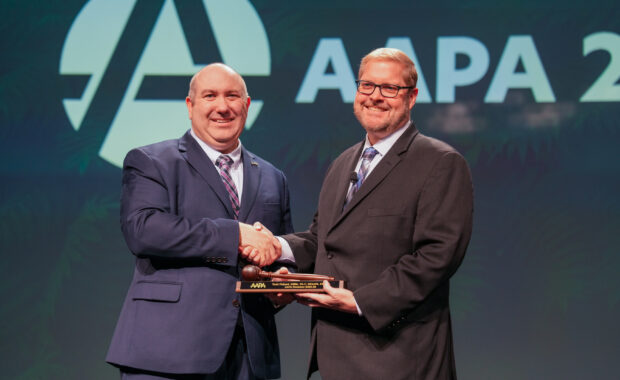PA Donates Kidney to 2-Year-Old Boy With Rare Disorder
‘I needed to help where I could.’
October 8, 2019
By Jennifer Walker
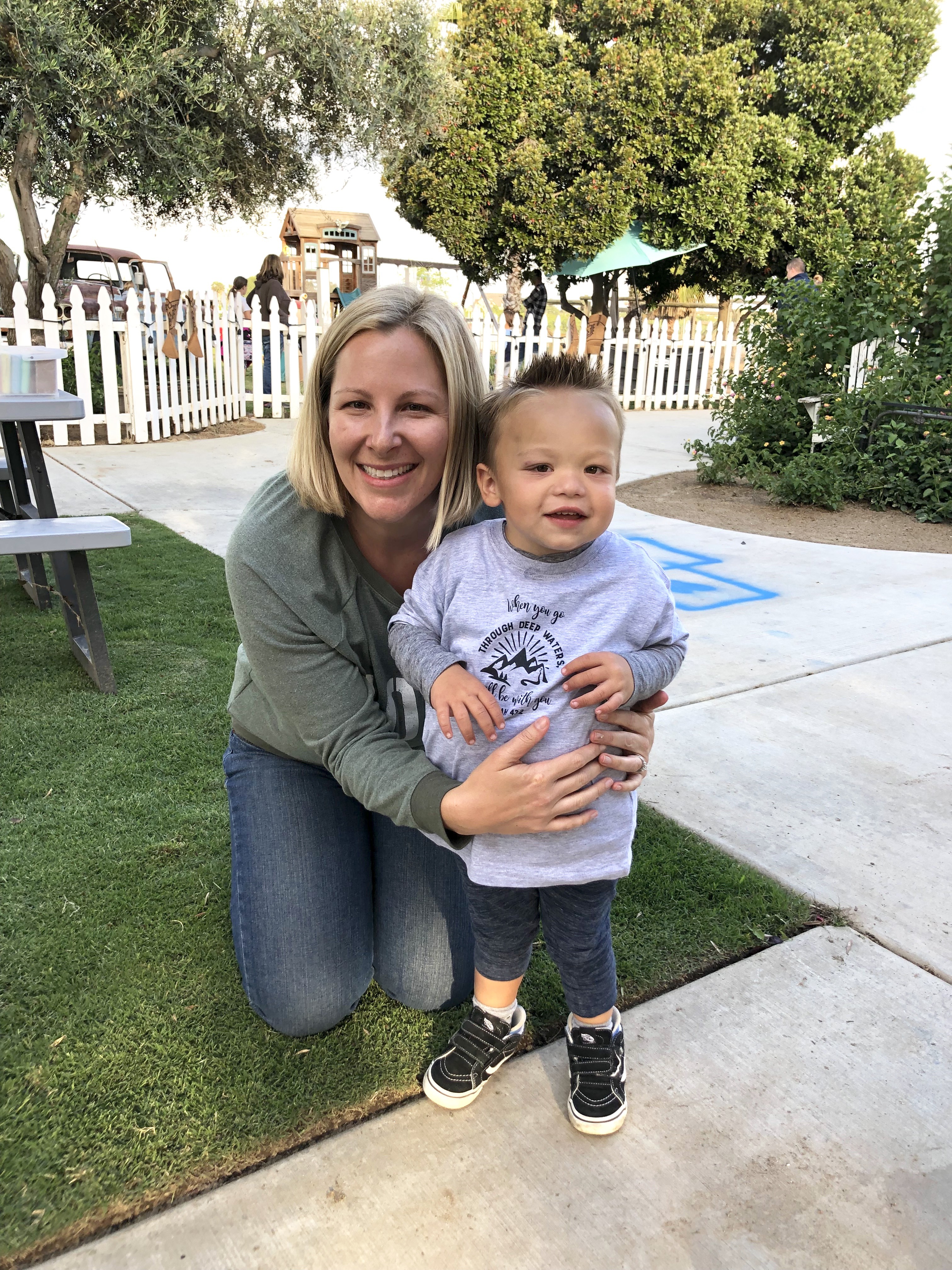
It’s hard not to tear up while watching a short video of an event honoring Susie LeRoy, PA-C, at Community Regional Medical Center (CRMC) in Fresno, California. LeRoy, who practices in the hospital’s emergency department, donated one of her kidneys to a young boy, and the hospital wanted to pay tribute to her. In the video, hundreds of people — mainly LeRoy’s friends and colleagues — line both sides of the hospital’s ER employee hallway holding signs that read “Susie Rocks!,” A Selfless Act of Love,” and “The Greatest Gift of All.” LeRoy walks down the middle of the hallway as everyone cheers then wipes tears from her eyes just before the end of the line where a family stands. LeRoy walks over and embraces Mandy Perry, who is holding her son Kaleb, almost three years old at the time and the recipient of LeRoy’s kidney.
It was three years ago that LeRoy first learned about the Perry family, which, along with Mandy and Kaleb, includes husband, Kevin, and son Jet, age 4. Several of LeRoy’s friends shared a Facebook page called “A Miracle for Kaleb,” written by Perry about Kaleb’s struggles with prune belly syndrome, a rare disorder. LeRoy, who has three children, ages 5, 3, and 1, felt compelled to follow the family’s story. “[It ended up being] a need that I felt so heavy in my deepest parts,” she says. “I needed to help [the Perrys] where I could.”
The Story of “A Miracle for Kaleb”
When Perry was pregnant with Kaleb, physicians noticed that the baby wasn’t urinating. He went through five surgeries in utero, and was diagnosed with prune belly syndrome after his birth. This disorder is characterized by a lack of abdominal muscles and a complicated renal and genitourinary system.
On the Facebook page, Perry explains Kaleb’s challenges and gives updates about his treatment. She also asks for prayers often, a request that resonates with LeRoy, who is a Christian. But LeRoy thought praying would be the extent of her involvement. “They had a few thousand followers, and I was just one many following and praying,” she says. “I didn’t think I would ever meet them. I didn’t have any desire. I was just an audience to their posts.”
In early 2019, Perry posted about Kaleb’s need for a kidney transplant. Without a new kidney, the 2-year-old boy would have to go on dialysis. Kaleb was on the list to get a kidney from a deceased donor, which would last about 15 years on average. But the Perrys were hoping to find a kidney from a living donor, which would likely give Kaleb more time before he needed another transplant. None of Kaleb’s family members were a match, so the Perrys took to social media to find a donor.
Reading the Perrys’ story, “It just kind of weighed heavy on my heart,” LeRoy says. “And I thought, ‘I’ll just message her and see what this entails.’”
Deciding to Become a Donor
Perry responded to LeRoy’s message quickly. A potential donor would need to have an O+ blood type. Those who have this blood type could then call the transplant coordinator at the Lucile Packard Children’s Hospital Stanford in Palo Alto, Calif., where Kaleb was being treated. LeRoy messaged Perry to thank her, then sat with this information for a while, thinking about what to do next. “Some people think that I had this automatic yes from the beginning, but I really didn’t,” she says. “I needed time to process it and to really see if this is what was right for me and my family.”
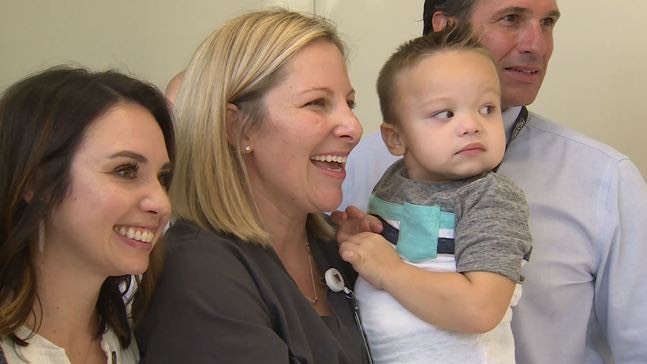
A couple weeks later, LeRoy decided she at least needed to find out her blood type. Her OBGYN’s office told her that she is indeed O+. But LeRoy had some reservations to address before moving on to the next step.
“My fears were that I was going to die,” she says. “What if my kidneys failed tomorrow? What if I threw a clot and had a stroke? … I really had to decide and talk to my husband about whether I was going to continue down this road.” LeRoy ultimately felt compelled to continue on this path, and decided she was willing to accept any increased risks that came with it.
The next step was calling the transplant coordinator, who sent LeRoy a set of vials to get her blood drawn for antibody testing. A few weeks later, the results came back: Kaleb didn’t have a significant number of antibodies that would reject LeRoy’s kidney. There were more tests after that: lab tests and MRIs, a visit to Stanford for a social screening. Eventually, it was time for LeRoy’s case to be presented to a committee, which would decide if she should be the donor.
Meeting the Perrys
While LeRoy was going through this process, Perry posted another update about Kaleb: His kidney was declining. At the time, Perry had no idea that LeRoy could be a potential donor. Wanting to give Perry some hope, LeRoy asked the staff at Stanford if she could call her. The two women talked then made plans to meet at a playground with their kids.
“I got to see Kaleb,” LeRoy says. “He was a very normal 2-year-old who wanted to play. It was just amazing to me how normal he was [when] his body was failing him. But kids are so resilient in that he is so joyful. He has every reason to have every negative emotion, and he just doesn’t. It was really encouraging to see them.”
In early May 2019, the Stanford committee approved LeRoy’s case, and LeRoy got to call Perry with the news. “I had felt empathetic towards Mandy, as a mom to another mom,” LeRoy says. “That feeling of being able to give hope to another mom, it still makes me emotional. To give her that news that this was going to happen and that [Kaleb] wasn’t going to end up on dialysis, it’s a conversation I’ll never forget.”
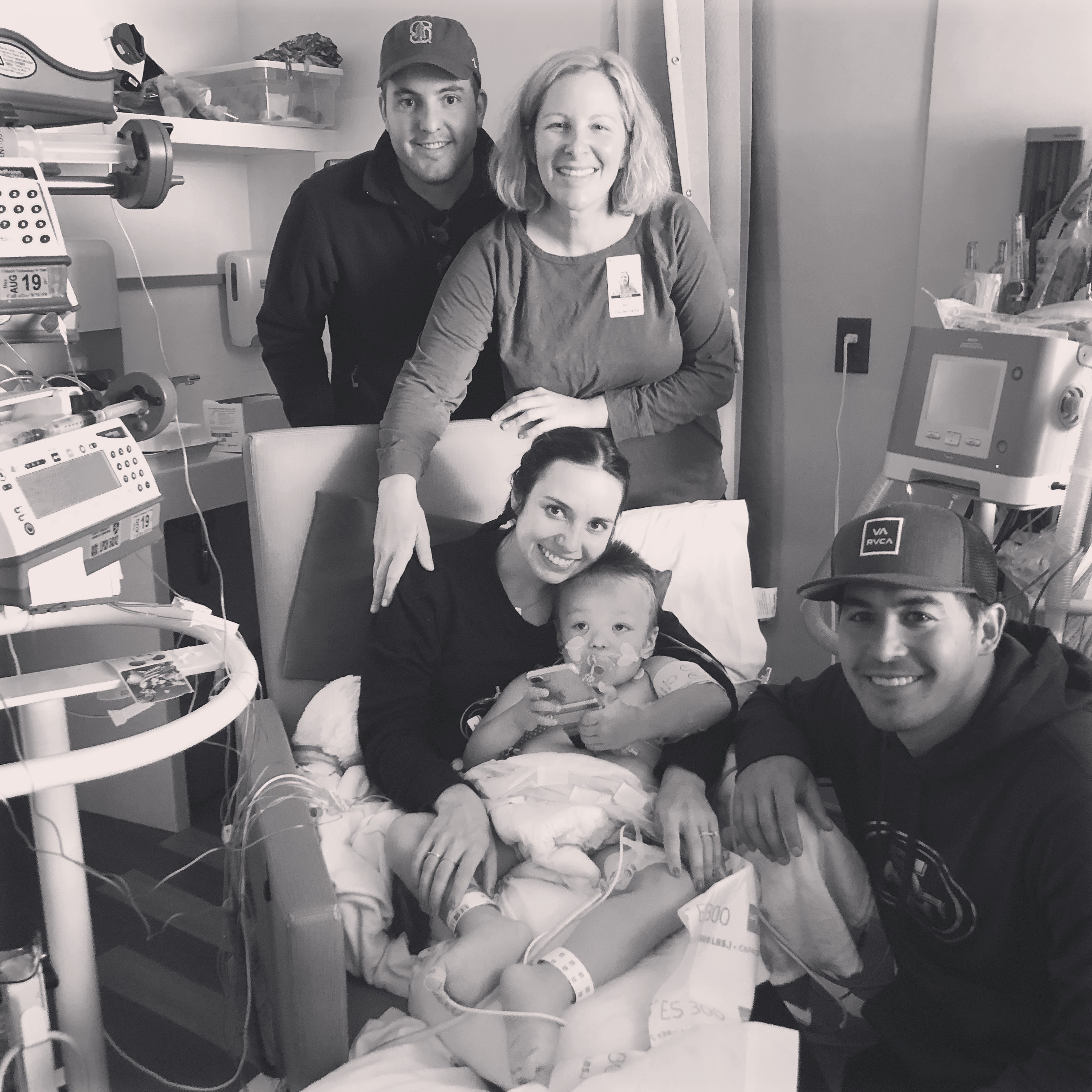
LeRoy and Kaleb have Surgery
The surgery was scheduled for May 28, 2019. LeRoy was in the hospital for four days. Her recovery was expected to take six weeks with no heavy lifting during that time, but she had her strength and energy back after two weeks.
Kaleb did well with the surgery but he still faces regular challenges. He has to take medications so his body won’t reject his new kidney, but the medications also suppress his immune system. This can be dangerous for Kaleb, who struggles to breathe if he catches an infection that causes him to cough. “It’s such a fine balance between his anti-rejection medications and his immune system,” LeRoy says. “He’s not out of the woods by any means, but there are so many more possibilities for him now that he has a healthy kidney.”
The Honor Walk
In September, Community Regional Medical Center held the walk for LeRoy. They told her she needed to come in to film a story for the hospital. But the night before, LeRoy had a fever and belly pain, so she nearly canceled the meeting.
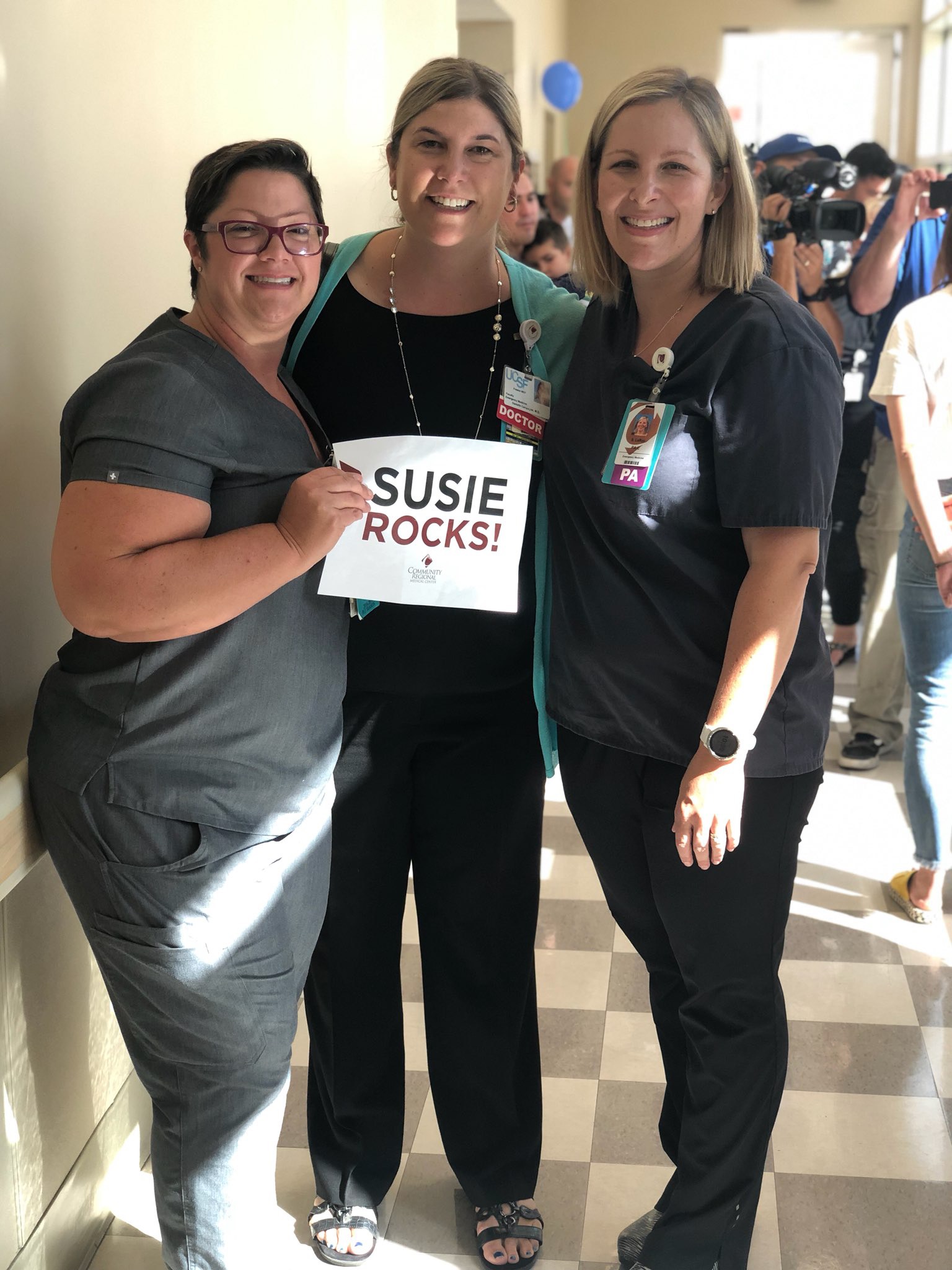
The hospital — which had planned the event along with Donor Network West, an organ procurement and tissue recovery organization — asked that she try to come anyway. LeRoy went to work, was surprised with this special event, and checked into the hospital afterward for an appendicitis.
“I didn’t know [my appendix] was infected at the time,” she says. “I was just focused on the walk. [My hospital] is full of people who want to do the right thing for low-income people, for underserved populations, for everyone, so this is just typical that they would want to honor someone who had done something for someone in need. It meant a ton coming from my colleagues. I was so glad I was able to go.”
Throughout the kidney donation process, LeRoy — who has become close with the Perrys, talking to Mandy Perry every few days — says her background as a PA was an asset. She had treated patients who had one kidney, and she could draw on those experiences to ease her fears. She encourages PAs to think about the ways they can further help the communities they serve. “Being a PA and being sensitive to the needs we see in people and trying to fill those needs in whatever way we can, that’s where I think we really can make a difference,” she says.
More Resources
American Academy of Nephrology PAs
AANPA’s Kidneys in a Box CME
PAs in Nephrology Get Creative with Kidney Health
PA Gives Gift of Life to 7-Year-Old Leukemia Patient
Jennifer Walker is a freelance writer in Baltimore, MD. Contact Jennifer at [email protected].
Thank you for reading AAPA’s News Central
You have 2 articles left this month. Create a free account to read more stories, or become a member for more access to exclusive benefits! Already have an account? Log in.
